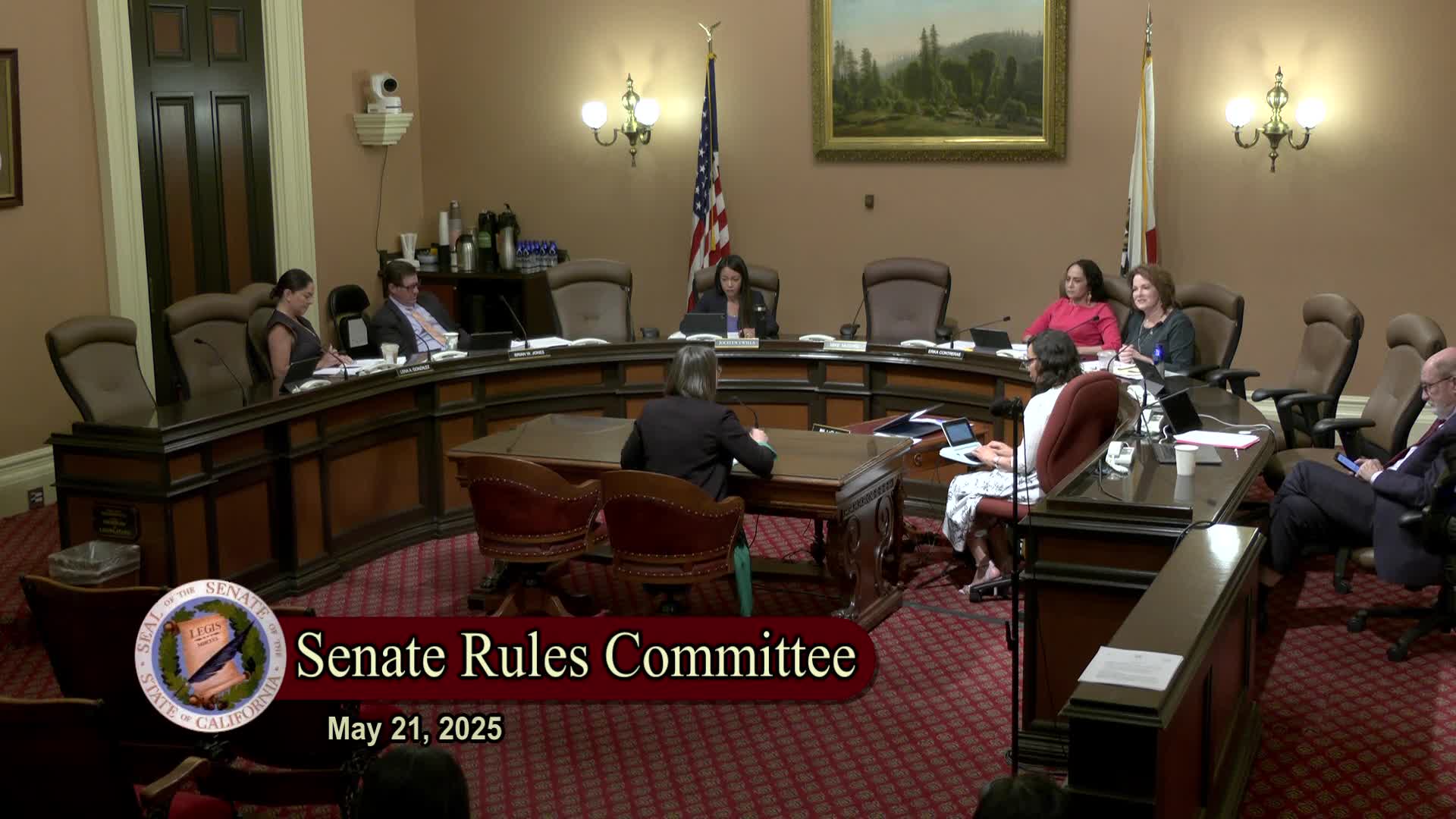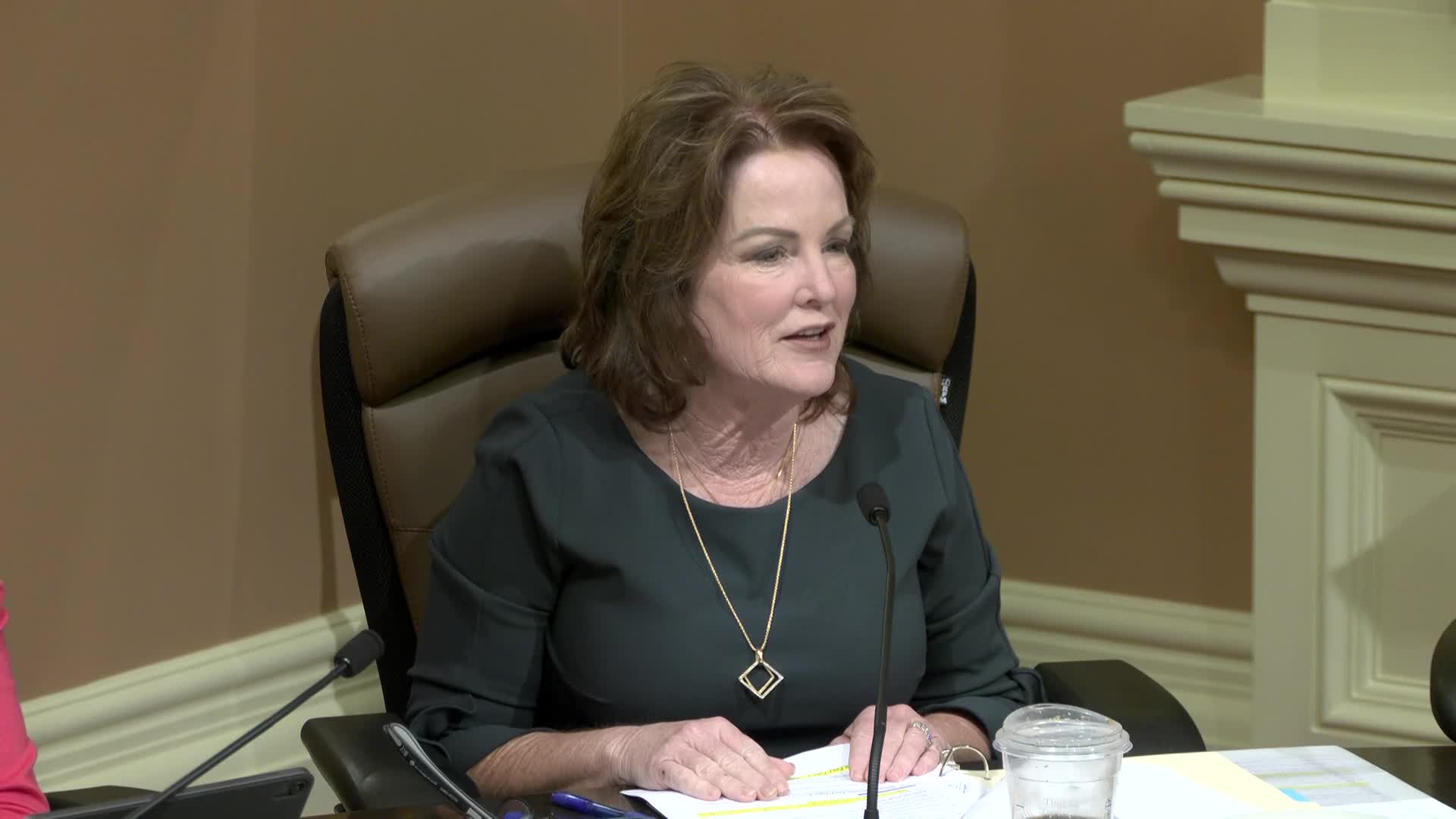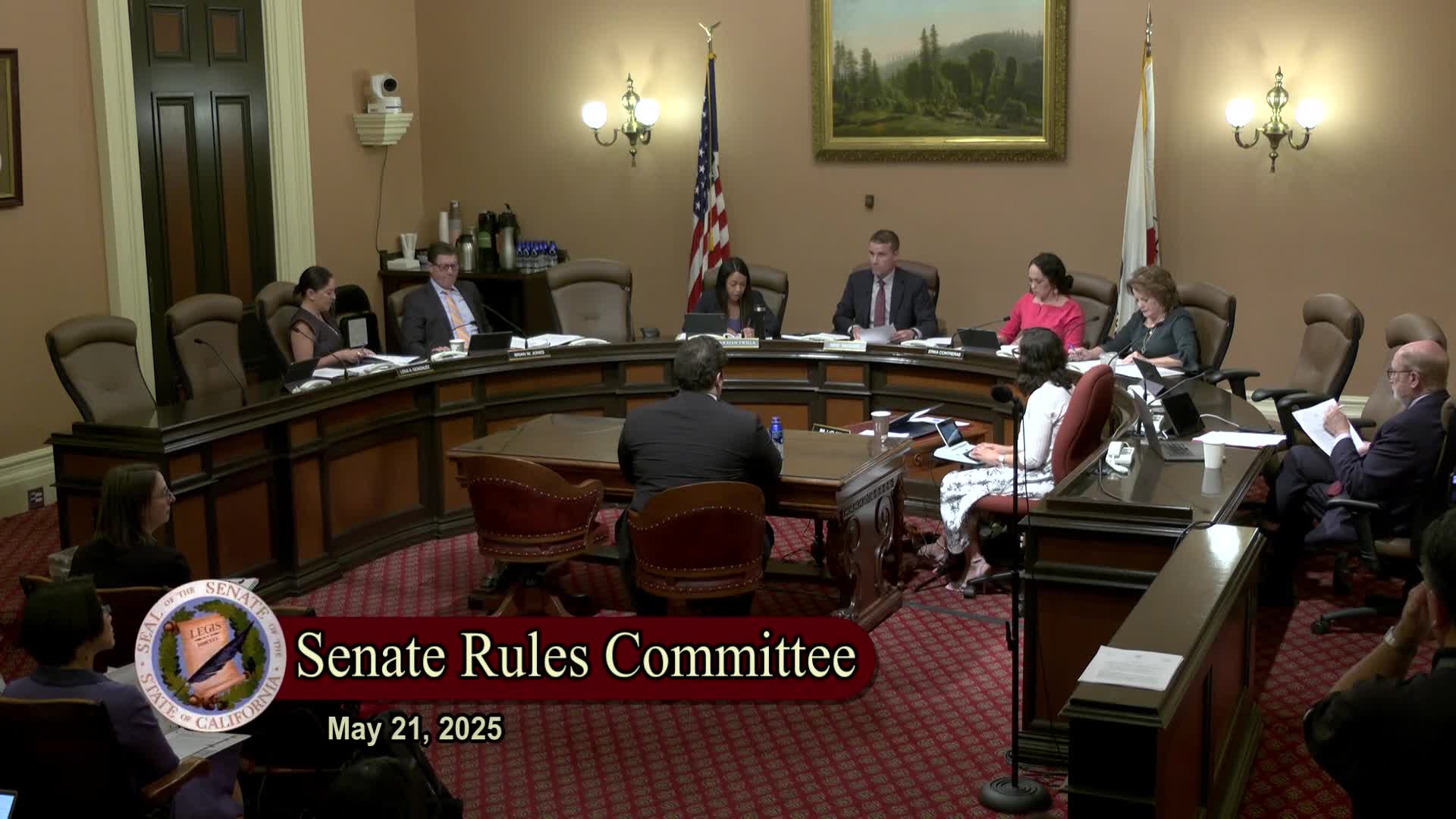Article not found
This article is no longer available. But don't worry—we've gathered other articles that discuss the same topic.

Committee advances Lisonbee Ganter as first director of in-custody death review after questions on authority and inspections

Rules committee advances Dr. Erica Pahn to full Senate after hearing on federal funding, vaccines and pandemic lessons

